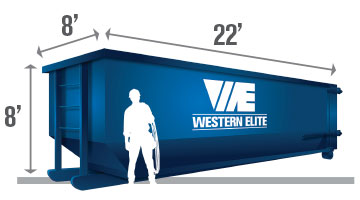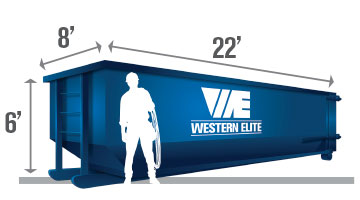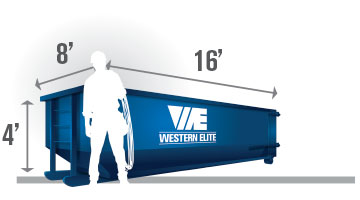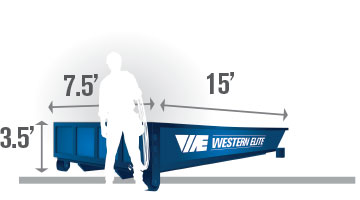The State of the Union
The topic of environmentalism is multifaceted and can often feel too big for any one person to handle. “What can I do,” they may ask, “that will have any real significance in saving the planet?” Admittedly, preserving the environment is a big topic, and can be approached from any of a hundred different areas; our carbon footprint, or our use of natural vs man-made energy, for example. But to explore environmentalism through the lens of waste in America is really a story of waste management.
The Environmental Protection Agency (EPA) made a report in the not-too-distant past about the state of waste management in the United States. According to their findings, Americans had created over 292.4 million tons of municipal solid waste in the year 2018. Municipal solid waste (MSW) is described as the typical trash a household or business produces and throws away each day. In terms of the more specific construction and destruction (C&D)-type waste that is generated at residential and commercial construction projects, that monumental number is more than doubled to 600 million tons of debris in 2018.
The Brass Tacks of Waste Disposal
So, with a combined gross weight of nearly 900 million tons, what did America do with all that trash? Perhaps the first thing anyone will ask is how much of that was recycled, and that’s a fair place to start.
Recycling
- About 69 million tons of MSW were recycled in 2018, and 25 million tons were composted. At a gross of 292.4 million tons, approximately 32.1% of all MSW in America was repurposed in recycling or composting efforts.
- Conversely, when discussing C&D waste, the recycling efforts looked far better. Of 600 million tons of debris, just over 455 million tons were recycled. That’s over 75%.
Why the disparity between the two camps? Why isn’t reusable MSW at a higher percentage? There are a few reasons for this. First of all, C&D debris is easier to be repurposed. Remember, construction and destruction waste is the type that people rent a dumpster to dispose of; trash like building wood, steel, concrete, glass, and salvaged components like doors or windows. Over the years, waste management organizations have made great strides in ensuring that reusable materials are recycled. At Western Elite, 100% of construction and demolition boxes are processed for recyclables to separate out salvageable materials. Other dumpster rental agencies require their clients to rent an additional recycling dumpster and to do it themselves.
What about MSW, then? Well, this gets a bit more complicated. On the whole, recycling remains a personal effort. Not everyone chooses to rent a residential dumpster for recycling, and many establishments like apartment and business complexes don’t properly label their recycling dumpster, so much of what is salvageable is disposed of needlessly. The same goes for food composting.
Landfills
What happens to everything else that isn’t recycled? While there have certainly been many options posited either humorously or carelessly, like shooting the trash into space or dumping it into the ocean, in 2018 America sent approximately 50% of its MSW and 25% of its C&D waste to the landfill. Of that, the biggest single percentage was food.
If that seems dire, not all landfills are a total loss. Over time (and especially recently), efforts have been made to, essentially, recycle the landfill. Landfill gases can be mined into converted electricity, and the ground can be repurposed as a site of renewable energy with solar panels or even windmills installed. Of course, this is a delicate process; as waste decomposes, the soil will shift, which may cause it to become unstable. Waste management facilities must determine the viability of the area before such measures can be taken.
If I Rent a Dumpster, Am I Adding to the Problem?
With such reports coming out of the EPA, one could reasonably begin to wonder if they’re playing a role in a bigger problem. Every human being on earth creates trash, but there are small ways we can all improve so that we can better take care of our planet. When it comes to waste disposal, proper recycling is the key to turning things around in a positive way. Proper recycling includes:
- Only putting recyclable materials into properly marked containers. Too often regular trash ends up in these recycling bins, which defeats the purpose.
- Asking your city for a recycling can for your home, or speaking to the city council about establishing a recycling pickup on a weekly basis.
- Renting a commercial dumpster from an environmentally conscientious company. Some facilities are better than others when it comes to recycling. Western Elite processes 100% of construction and demolition boxes in order to salvage reusable materials, instead of requiring you to rent a separate recycling dumpster. It is one of the biggest advocates for recycling in the state of Nevada.
The next time you have a building or remodeling project, be it residential or commercial, consider the C&D waste you will produce, and choose a dumpster rental agency that will respect your efforts to go green.






